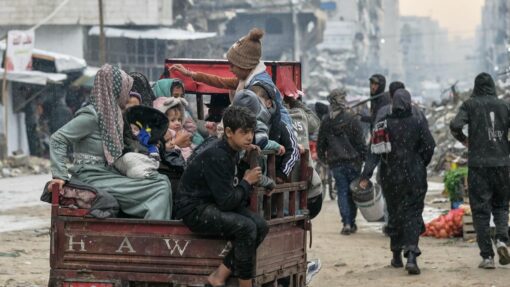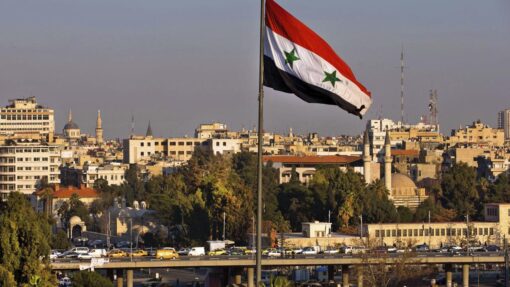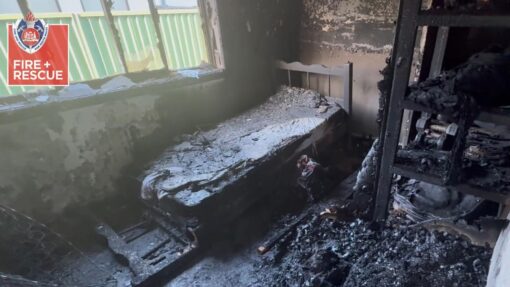Fighting between Israeli forces and Hamas rages
Nidal al-Mughrabi and Arafat Barbakh |
Fierce Israeli tank fire and aerial bombing have struck Khan Younis in the Gaza Strip after almost 200 people were reported killed in 24 hours in Israel’s campaign against Hamas militants.
Planes also carried out a series of air strikes on the Nuseirat camp in central Gaza on Friday night, according to medics and Palestinian journalists.
Israeli forces have been pounding Khan Younis in preparation for an anticipated further advance into the main southern city, swathes of which they captured in early December.

Defence Minister Yoav Gallant said troops were reaching Hamas command centres and arms depots.
The Israeli military said it had destroyed a tunnel complex in the basement of one of the houses of the Hamas leader for Gaza, Yahya Sinwar, in Gaza City.
Twelve weeks after Hamas militants stormed Israeli towns, killing 1200 people and seizing 240 hostages, Israeli forces have laid much of the Gaza Strip to waste as it pursues its war aimed at eradicating the Islamist militants.
Almost all of Gaza’s 2.3 million people have fled their homes at least once and many are on the move again, often reduced to taking shelter in makeshift tents or huddled under tarpaulins and plastic sheets on open ground.
The narrow coastal strip is just 40km long, making it one of the most densely populated areas in the world.
Gaza health authorities said 187 Palestinians were confirmed killed in Israeli strikes in 24 hours, raising the overall toll to 21,507 – about one per cent of Gaza’s population.
Thousands more bodies are feared to be buried in the ruins of neighbourhoods.

A Palestinian journalist working for Al-Quds TV was killed along with some of his family members in an Israeli air strike on their house in the Nuseirat camp in central Gaza Strip, health officials and fellow journalists said.
Gaza’s government media office says 106 Palestinian journalists have been killed in the Israeli offensive.
The Committee to Protect Journalists (CPJ) said the first 10 weeks of the Israel-Gaza war were the deadliest recorded for journalists, with the most journalists killed in a single year in one location.
Most of the journalists and media workers killed in the war were Palestinian.
Israel has previously said it has never and will never deliberately target journalists and that it is doing what it can to avoid civilian casualties, but the high death toll has caused concern even amongst its staunchest allies.
The US has called for Israel to scale down the war and move to targeted operations against Hamas leaders, although so far it shows no sign of doing so.
South Africa asked the International Court of Justice (ICJ) on Friday for an urgent order declaring that Israel was in breach of its obligations under the 1948 Genocide Convention in its crackdown against Hamas in Gaza.
It called on the court to issue short-term measures ordering Israel to stop its military campaign “to protect against further, severe and irreparable harm to the rights of the Palestinian people”.
No date has been set for a hearing.
In response, Israel’s foreign ministry blamed Hamas for the suffering of Palestinians in Gaza by using them as human shields and stealing humanitarian aid from them.
Hamas denies such accusations.
Israel on Friday said it facilitated the entry of enough vaccines to inoculate almost 1.4 million people against illnesses including polio, tuberculosis, hepatitis, diphtheria, tetanus, whooping cough and meningitis.
The vaccine transfer was co-ordinated with UNICEF, said a statement from COGAT – the defence ministry agency that co-ordinates with the Palestinians – to prevent the spread of disease in the enclave.
Gaza is almost entirely reliant on food, fuel and medical supplies from the outside, and Israel has limited access to the southern end of the strip.
International agencies say supplies getting in through Israeli inspections are a small fraction of Gaza’s needs.
Reuters


